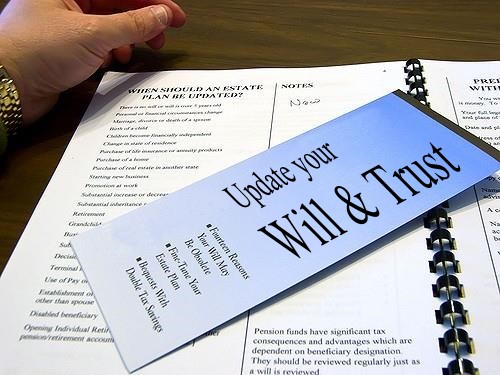With the coronavirus having the world in its grip for months, there is no better time than now to review and update your estate plan. It is recommended that after creating an estate plan, you update it every three to five years. Today, with the coronavirus sweeping the country and the rest of the globe, it is more important than ever. These are uncertain times, and an updated estate plan will convey your wishes, ensure that your beneficiaries receive the assets you intended them to have, and can help your loved ones avoid the lengthy process of probate.
Updating a Will
Many estate plans start with the creation of a will. Although a will cannot ensure that your loved ones will not have to go through probate, it can simplify and expedite the process. Many people today have much more time than they do when they carry on with their regular routines, making it a perfect time to take inventory of your assets and any other property you would like to include in your will. If you have already created a will, now is the time to update it. Consider any births, deaths, divorces, or marriages that may affect your will, as well as any change in relationships you may wish to have your will reflect.
Updating Trusts
There are many reasons to create a trust. Trusts are simply documents that can protect your assets and make it less likely that your loved ones do not have to go through a lengthy probate process. Again, a trust does not ensure your family members will not have to go through probate at all, but it can certainly make the process much quicker. When you make a revocable living trust, you can also change the trust at any time and update it, just as you do with your will. Parents with minor children also often create a trust to hold certain assets that are then released to the children after they turn a certain age.
If you have not created a trust yet, you may wish to do so in order to protect your assets, or you may
want to create a trust for a minor child who was born after creating your original trust.
Updating Powers of Attorney
A power of attorney is a document that gives another person the power to make decisions on your behalf in the event that you become incapacitated and cannot make those decisions for yourself. Within a power of attorney, you can outline the specific powers your agent, or attorney-in-fact has, and the types of decisions they can make on your behalf. You can choose a general power of attorney, which grants the agent the power to make all personal and business decisions for you, or a limited power of attorney, which only grants the power to make certain decisions. In either case, a power of attorney is no longer in effect after you pass away or the agent becomes incapacitated. You should review your power of attorney to ensure you would still like to grant the agent the power of attorney, and that they are still able to carry out their duties.
Updating Your Estate Plan? We Can Help!
If you do not already have an estate plan, it is crucial that you create one as soon as possible. If you have one, it's critical to make sure that it is in line with current laws and accounts for any major life changes that have happened since it was drafted. In either case, the Altman team can help. Call us today at (301) 468-3220 or contact us online to schedule a meeting with one of our knowledgeable attorneys. We are offering in-person and virtual consultations for Maryland, D.C., and Northern Virginia residents.
